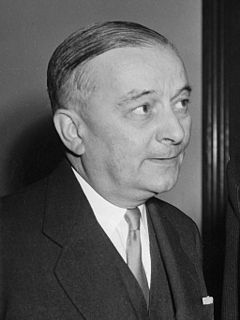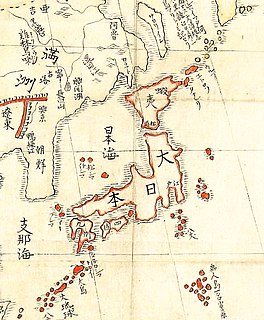Minister of War Production (1942)
| Portrait | Name | Term of office | Political party | ||
|---|---|---|---|---|---|
 | Max Aitken The Lord Beaverbrook | 4 February 1942 | 19 February 1942 | Conservative | |
The Minister of Production was a British government position that existed during the Second World War, heading the Ministry of Production.
Initially the post was called "Minister of War Production" when it was created in February 1942, but the first Minister, Lord Beaverbrook, resigned after only two weeks in office. A month later upon the appointment of the second holder the post was titled "Minister of Production".
| Portrait | Name | Term of office | Political party | ||
|---|---|---|---|---|---|
 | Max Aitken The Lord Beaverbrook | 4 February 1942 | 19 February 1942 | Conservative | |
| Portrait | Name | Term of office | Political party | ||
|---|---|---|---|---|---|
 | Oliver Lyttelton MP for Aldershot | 12 March 1942 | 27 July 1945 | Conservative | |

Total war is warfare that includes any and all civilian-associated resources and infrastructure as legitimate military targets, mobilizes all of the resources of society to fight the war, and gives priority to warfare over non-combatant needs.

William Maxwell Aitken, 1st Baron Beaverbrook, PC, ONB, generally known as Lord Beaverbrook, was a Canadian-British newspaper publisher and backstage politician who was an influential figure in British media and politics of the first half of the 20th century. His base of power was the largest circulation newspaper in the world, the Daily Express, which appealed to the conservative working class with intensely patriotic news and editorials. During the Second World War, he played a major role in mobilising industrial resources as Winston Churchill's Minister of Aircraft Production.

Lal Bahadur Shastri was an Indian statesman who served as the second Prime Minister of India. He promoted the White Revolution – a national campaign to increase the production and supply of milk – by supporting the Amul milk co-operative of Anand, Gujarat and creating the National Dairy Development Board. Underlining the need to boost India's food production, Shastri also promoted the Green Revolution in India in 1965. This led to an increase in food grain production, especially in Punjab, Haryana and Uttar Pradesh.

The Organization of the Petroleum Exporting Countries is an intergovernmental organization or cartel of 13 countries. Founded on 14 September 1960 in Baghdad by the first five members, it has since 1965 been headquartered in Vienna, Austria, although Austria is not an OPEC member state. As of September 2018, the 13 member countries accounted for an estimated 44 percent of global oil production and 81.5 percent of the world's "proven" oil reserves, giving OPEC a major influence on global oil prices that were previously determined by the so-called "Seven Sisters" grouping of multinational oil companies.
The 2003 invasion of Iraq began on March 20. On March 18, US President George W. Bush had set a deadline for the ruler of Iraq, Saddam Hussein, and his two sons, Uday and Qusay, to leave the country or face military action. By the time of the ultimatum, political and military preparations for the invasion were well advanced.

Georges-Augustin Bidault was a French politician. During World War II, he was active in the French Resistance. After the war, he served as foreign minister and prime minister on several occasions. He joined the Organisation armée secrète; however he always denied his involvement.

The secretary of state for defence, also referred to as the defence secretary, is a secretary of state in the Government of the United Kingdom, with overall responsibility for the business of the Ministry of Defence. The incumbent is a member of the Cabinet of the United Kingdom, sixth in the ministerial ranking.
The prime minister of South Africa was the head of government in South Africa between 1910 and 1984.

The Minister for Defence is the principal minister responsible for the organisation, implementation, and formulation of government policy in defence and military matters for the Australian Government. The individual who holds this office directs the government’s approach to such matters through the Australian Defence Organisation and, by extension, the Department of Defence and the Australian Defence Force. The office of the Minister for Defence, like all Cabinet positions, is not referenced in the Constitution of Australia but rather exists through convention and the right of the Governor-General to appoint ministers of state.

Sir Howard Kingsley Wood was an English Conservative politician. The son of a Wesleyan Methodist minister, he qualified as a solicitor, and successfully specialised in industrial insurance. He became a member of the London County Council and then a Member of Parliament.

Christopher Addison, 1st Viscount Addison,, was a British medical doctor and politician. A member of the Liberal and Labour parties, he served as Minister of Munitions during the First World War and was later Minister of Health under David Lloyd George and Leader of the House of Lords under Clement Attlee.
The Minister of Aircraft Production was, from 1940 to 1945, the British government minister at the Ministry of Aircraft Production, one of the specialised supply ministries set up by the British Government during World War II. It was responsible for aircraft production for the British forces, primarily the Royal Air Force, but also the Fleet Air Arm.

The Shōwa Financial Crisis was a financial panic in 1927, during the first year of the reign of Emperor Hirohito of Japan, and was a foretaste of the Great Depression. It brought down the government of Prime Minister Wakatsuki Reijirō and led to the domination of the zaibatsu over the Japanese banking industry.

The Ministry of Defense of the government of Israel, is the governmental department responsible for defending the State of Israel from internal and external military threats. Its political head is the Defense Minister of Israel, and its offices are located in HaKirya, Tel Aviv.

The Japanese economic miracle is known as Japan's record period of economic growth between the post-World War II era to the end of the Cold War. During the economic boom, Japan rapidly became the world's second largest economy. By the 1990s, Japan's demographics began stagnating and the workforce was no longer expanding as it did in the previous decades, despite per-worker productivity remaining high.

The Ministry of Defence (MoD) is charged with coordinating and supervising all agencies and functions of the government relating directly to national security and the Indian armed forces. The President of India is the ceremonial commander-in-chief of the armed forces of the country. The Ministry of Defence provides policy framework and resources to the armed forces to discharge their responsibility in the context of the defence of the country. The Indian Armed Forces and Indian Coast Guard under the Ministry of Defence are primarily responsible for ensuring the territorial integrity of India.

The Churchill war ministry was the United Kingdom's coalition government for most of the Second World War from 10 May 1940 to 23 May 1945. It was led by Winston Churchill, who was appointed Prime Minister by King George VI following the resignation of Neville Chamberlain in the aftermath of the Norway Debate.

Although most Australian civilians lived far from the front line of World War II, the Australian home front during World War II played a significant role in the Allied victory and led to permanent changes to Australian society.
Reda Mahmoud Hafez Mohamed was the commander of the Egyptian Air Force. Mohamed was also the minister for military production in the interim cabinet led by Prime Minister Hazem Al Beblawi.
The Ministry of Commerce and Industry was a cabinet-level ministry in the government of the Empire of Japan from 1925-1947. It was created from the Ministry of Agriculture and Commerce, and was briefly merged with the Ministry of Agriculture and Forestry to reestablish that Ministry during World War II.